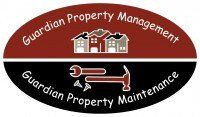What Is an Assumable Mortgage? How Does It Work?
What is an assumable mortgage? It's an alternative approach to buying a house. Instead of applying for a new mortgage, you assume the existing loan attached to the property.
By doing so, you could enjoy more favorable terms than what's currently available in the market. Essentially, you step into the shoes of the original borrower, inheriting their mortgage, including its interest rate and repayment conditions.
It can be a strategic move, especially when interest rates are high, as you may lock in a lower rate. Assumable mortgages offer cost-saving opportunities and can be an attractive option for savvy homebuyers seeking better financing deals.
What is an Assumable Mortgage?
With an assumable mortgage, homebuyers have the opportunity to acquire a property by assuming the seller's existing mortgage loan. This option becomes appealing when buyers seek to capitalize on lower interest rates, especially if rates have increased since the seller first obtained the mortgage.
By taking over the seller's mortgage, the buyer can benefit from the more favorable financing terms, making it a strategic move to secure better loan conditions and save on interest costs.
Why Choose an Assumable Mortgage?
Amidst high mortgage rates reaching 7.19% for 30-year loans, the housing market poses challenges for prospective homebuyers. However, loan assumption presents a viable solution, enabling buyers to take over the existing homeowner's mortgage while preserving its original terms, including repayment period and interest rate.
It provides an advantageous opportunity to secure a home at a lower interest rate, even in an increasingly expensive housing market. Moreover, sellers offering loan assumption gain a competitive edge, as they can offer the chance to lock in low-interest rates.
This advantage may allow them to sell their homes at higher prices, as the lower interest rate offsets the higher principal amount, making the overall package more appealing to potential buyers.
What Are Some Examples of Assumable Loans?
In a home sale, it's essential to note that not all mortgages are assumable. Buyers have the option to assume federally guaranteed or insured mortgages, but conventional loans are not assumable. However, buyers can take advantage of assuming the following types of home loans:
FHA Loans
To assume an FHA loan, you must meet standard FHA loan criteria. It includes making a minimum down payment of 3.5 percent and having a credit score of at least 580.
USDA Loans
A USDA loan typically requires a minimum credit score 620 and meeting income limits and location requirements. Usually, a USDA loan is assumed with new rates and terms. However, in some cases, like transfers between family members, it can be assumed with the same rate and terms without meeting eligibility requirements.
VA Loans
Assuming a VA loan necessitates lender approval, with a focus on evaluating your creditworthiness as a borrower. You don't have to be a military member or a veteran to assume a VA loan, but a credit score of around 620 or higher is usually preferred. Additionally, you'll still need to pay the funding fee of 0.5%.
Conventional Loans
Typically, conventional loans aren't assumable due to a due-on-sale clause in the mortgage contract. This clause permits the lender to require the buyer to pay the entire remaining loan amount immediately upon the sale of the property.
Yet, there is an exception for conventional
adjustable-rate mortgages (ARMs) under certain financial qualifications. If you meet these requirements, your mortgage might be eligible for assumption. Fannie Mae allows assumable ARMs if the borrower refrains from attempting to convert the loan into a fixed-rate mortgage. This unique provision opens the possibility of mortgage assumption for those with specific types of conventional ARMs.
How Does An Assumable Mortgage Loan Work?
When assuming a mortgage, the existing borrower transfers the remaining loan balance to you, making you responsible for future payments. It means you inherit the same terms as the previous homeowner, including the interest rate and monthly payments.
However, there's an additional aspect to consider in the home purchase process. When assuming the mortgage, you must compensate the seller for their accumulated home equity—the amount of the mortgage they've already paid off.
This equity payment forms part of the overall purchase price and must be made upfront during the closing, effectively becoming part of your down payment. You can pay this amount from your funds or finance it through another loan.
For instance, if a home is valued at $400,000 with an outstanding mortgage balance of $250,000, the seller's equity stake in the property is $150,000. To complete the assumption, you would need to provide a cash payment of $150,000 to reimburse the seller for their equity position.
How Much Does an Assumable Mortgage Cost?
Buyers considering mortgage assumption should be prepared to cover significant closing costs or explore obtaining a second home loan. One notable drawback is that properties with a higher value than the remaining loan balance necessitate a larger down payment, increasing the overall cost of the transaction.
For example, if the purchase price is $190,000, and the remaining loan balance is $115,000, the buyer must bring the difference to the closing. Additionally, VA home loans typically require the buyer to pay a 0.5% funding fee based on the loan balance. These financial considerations are essential for potential assumers to factor into their decision-making process.
How to Get an Assumable Mortgage Loan?
If you're considering assuming a mortgage, here are some crucial points to keep in mind:
Check Assumability
Verify whether the mortgage is assumable. Most conventional mortgages do not offer this option.
Creditworthiness & Financial Evaluation
If assumption is possible, the homebuyer must apply for the assumable mortgage and undergo a credit and financial assessment to meet all contractual requirements. Demonstrating the ability to qualify for the loan is essential, showcasing sufficient financial assets.
Potential Cash Difference
Be aware that the buyer may need to bridge the gap between the amount owed and the home's current value. For instance, if the seller's home is valued at $300,000 with a $100,000 assumable mortgage, the buyer would need to put down $200,000 to assume the loan. This financial hurdle may pose challenges for many prospective homebuyers.
Title Transfer & Mortgage Payments
If the mortgage lender or agency approves the assumption, the property title transfers to the homebuyer, who then starts making monthly mortgage payments directly to the lender.
Lender Denial
In case the lender denies the application, the home seller must move forward, and the buyer may have to resume their home search elsewhere.
What are the Benefits of an Assumable Mortgage?
Assumable mortgage loans offer several advantages for prospective homebuyers.
Lower Interest Rates
The most significant benefit of assuming a mortgage is the possibility of securing a lower interest rate. While you must still meet credit score requirements, your score doesn't necessarily need to be as high as the original borrower's when they obtained the loan.
If the seller had an excellent credit score and obtained the loan when rates were lower, as long as your score meets the minimum requirement, you can still assume the loan and benefit from the favorable rate.
Smaller Closing Costs
Assumable loans typically come with lower closing costs because certain fees related to the loan are capped. The closing costs will vary based on factors such as your residence and individual lender fees. To estimate your total closing costs, speaking with one of the loan servicer's mortgage brokers is essential.
No Appraisal
In many cases, assuming a mortgage loan doesn't require an appraisal. As the home has gained equity over time and the loan balance has decreased, the property's value is assumed to exceed the remaining loan amount. This appraisal omission can save time and money during the home-buying process.
What are the Disadvantages of an Assumable Mortgage?
Prospective homebuyers should consider the potential drawbacks that accompany assumable mortgages:
Limited Eligibility
Assumable mortgages are only available for USDA, FHA, and VA loans. Sellers may face additional hurdles to release themselves from loan liability, making assumable mortgages less appealing if they have traditional offers.
Large Down Payment Requirement
The primary challenge of assuming a mortgage is the substantial down payment needed. While you can opt for a second mortgage if you lack the cash to cover the seller's equity, this can complicate matters. Depending on the seller's equity amount, it might be more convenient and advantageous to pursue a traditional mortgage instead.
Additional Closing Costs & Fees
While assumable mortgages generally have lower closing costs, extra fees can raise expenses. For instance, if the seller still has to maintain private mortgage insurance (PMI), you'll be required to do the same. In the case of FHA loans, PMI remains mandatory for the loan's entire duration, necessitating eventual refinancing to eliminate this recurring expense.
VA and USDA loans also have hidden fees. Assuming a VA loan involves a one-time 0.5% funding fee, while a USDA loan requires a 0.35% guarantee fee for the loan's entire life. These fees are calculated based on the remaining mortgage balance at the time of the transaction.
Conclusion
Buyers often find assumable mortgages appealing, especially when current mortgage rates are high, and closing costs are significantly lower than traditional mortgages. However, suppose the homeowner has substantial equity in the property. In that case, the buyer may need to make a sizable down payment or secure a new loan to cover the difference between the sale price and the existing mortgage.
It's essential to note that not all mortgages are assumable, and even if they are, the buyer must still qualify with the agency and lender. Weighing the benefits against potential risks, an assumable mortgage can be optimal for homeownership, particularly in certain market conditions.















